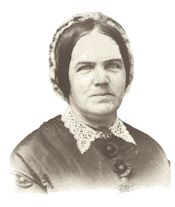December 24th.—Christmas eve! Clear and cold.
A dispatch from Hon. J. L. Orr and H. V. Johnson (on their way home) informs the Secretary that from the delay in the transportation of troops over the Piedmont Railroad, there must be either criminal neglect or treachery concerned in it.
Again it is rumored that Savannah has been evacuated. There is something in the air that causes agitation in official circles. Mr. Secretary Seddon’s room was locked nearly all day yesterday.
If troops cannot be transported expeditiously over the Piedmont Road, fears may be entertained for Wilmington, when, the gale subsiding, the enemy’s fleet has reappeared.
There is a rumor on the street that the government is to be removed to Lynchburg.
Gen. Lee has induced the President and Secretary of War to call for the clerks (detailed ones) to repair to the trenches again— this weather. The emergency must be great, as these soldiers get, as clerks, $4000 per annum, and rations, etc.
A dispatch from Gen. Bragg.
“Wilmington, N. C, December 23d, 1864.—The fleet, which drew off in the rough weather, is again assembled; seventy vessels now in sight on the coast. The advance of the troops (C. S.) only reached here to-night.—B. B.”
The clerks are drawing lots; one-half being ordered to the trenches. Of two drawn in this bureau (out of five) one is peremptorily ordered by the Secretary to remain, being sickly, and the other has an order to go before a medical board “to determine whether he is fit for service in the trenches for a few days.” Great commotion naturally prevails in the departments, and it is whispered that Gen. Lee was governed in the matter by the family of the President, fearing a Christmas visit from the negro troops on this side the river.
The following note was received to-day from the Vice-President:
“Richmond, Va , December 23d, 1864.—Hon. Jas. A. Seddon, Secretary of War: Will you please send me, through the post-office, a passport to leave the city? I wish to depart in a few days. Yours respectfully,
“Alex. H. Stephens.”
The President is hard at work making majors, etc.









